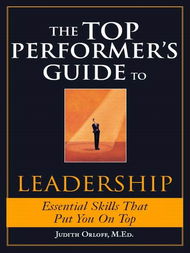In the serene world of angling, the pursuit of mastery is akin to a lifelong journey. Whether you're a seasoned fisherman or a beginner with a fishing rod in hand, the quest for improved techniques and accumulated wisdom can transform your fishing experience. This article delves into the secrets of fishing mastery, offering invaluable tips and experiences from seasoned anglers. So, let's cast our lines and explore how to brush up on your fishing skills.
Mastering the Basics: Choosing the Right Gear
Before you can begin to master the art of fishing, it's essential to have the right gear. The following tips will help you select the appropriate equipment for your fishing adventure:
- Rod and Reel: Choose a rod and reel that match the type of fishing you plan to do. For freshwater fishing, a spinning rod and reel are versatile and easy to use. For saltwater fishing, a baitcasting rod and reel may be more suitable.
- Line: The type of line you use depends on the fish you're targeting. Monofilament line is great for general use, while fluorocarbon line is nearly invisible in water and excellent for targeting spooky fish.
- Hooks: Select hooks that match the size and species of the fish you're aiming to catch. Larger hooks are better for larger fish, while smaller hooks are ideal for more delicate species.
- Lures and Bait: Research the preferences of the fish you're targeting and choose lures or bait that mimic their natural prey.
Learning the Techniques
Once you have the right gear, it's time to learn the techniques that will help you catch more fish:
- Casting: Practice your casting technique to ensure you can place your lure or bait precisely where you want it. There are various casting techniques, such as the overhead cast, sidearm cast, and roll cast, each suited to different situations.
- Trolling: Trolling involves dragging a lure or bait behind a moving boat at a specific speed. It's effective for catching fish that are swimming at different depths.
- Fishing from Shore: If you're fishing from the shore, learn to read the water's currents and structure to determine the best spots to cast.
- Fly Fishing: Fly fishing requires a different set of skills, including the ability to present a fly naturally to the fish. Practice your casting, mending, and retrieving techniques to improve your fly fishing prowess.
Accumulating Experience
Experience is the cornerstone of fishing mastery. Here are some ways to gain more experience:
- Join a Fishing Club: Clubs offer opportunities to fish with experienced anglers who can share their knowledge and techniques.
- Attend Workshops and Seminars: Many local shops and organizations host workshops and seminars that cover various aspects of fishing.
- Read Books and Magazines: There's a wealth of information available in fishing books and magazines that can help you improve your skills.
- Practice Regularly: The more you fish, the better you'll become. Practice your techniques and try new methods to expand your fishing repertoire.
How to Brush Up Your Skills: Tips for Improvement
Here are some practical tips to help you brush up your fishing skills:

- Watch Videos: Online tutorials and instructional videos can provide visual guidance on various fishing techniques.
- Join Online Forums: Online communities of anglers can offer advice, share tips, and discuss the latest fishing trends.
- Take Lessons: Consider hiring a professional fishing guide or instructor to provide personalized coaching.
- Experiment with Different Techniques: Don't be afraid to try new methods and adapt your approach based on what works best in different conditions.
The Mindset of a Master Angler
Finally, the mindset of a master angler is as important as the techniques and experience. Here are some key traits to cultivate:
- Patience: Fishing requires patience, especially when waiting for the perfect moment to cast or set the hook.
- Attention to Detail: Pay attention to the smallest details, such as the color of the water, the behavior of the fish, and the movement of the bait.
- Respect for Nature: A master angler understands the importance of preserving the environment and respecting the fish they catch.
- Continuous Learning: Always be open to learning new things and adapting your approach as you gain more experience.
In conclusion, mastering the art of fishing is a blend of having the right gear, learning the techniques, accumulating experience, and developing the right mindset. By following these tips and embracing the journey, you'll be well on your way to becoming a master angler. So, grab your rod, cast your line, and enjoy the beauty and challenge of fishing. Happy fishing!












